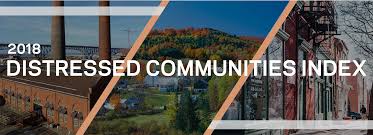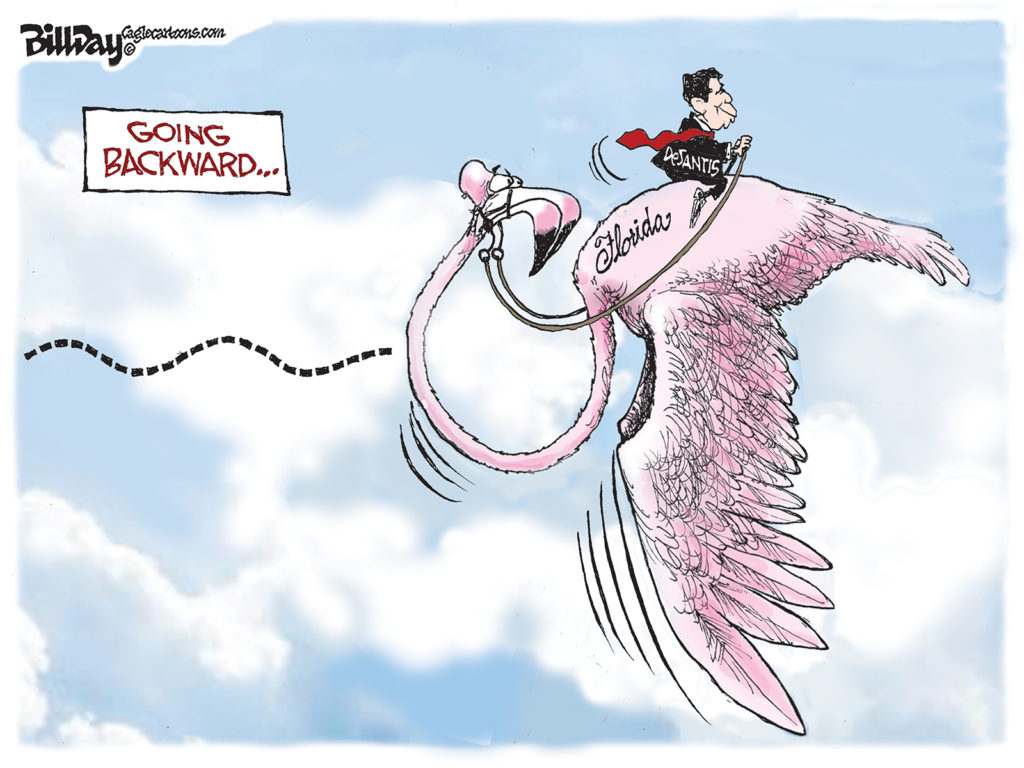By David Ciscel, Professor Emeritus in Economics, University of Memphis:
Recently, Smart City Memphis published several lists of peer cities. I was particularly interested in the list in the Economic Innovation Group’s Distressed Communities Index. There were 8 cities listed – Cleveland, Newark, Buffalo, Detroit, Toledo, Milwaukee, Stockton, CA, and Philadelphia.
How do we compare to those cities — the MSAs – as we look at the future of Memphis? The Memphis MSA is an eight county, full-employment, slow growing economic zone. Poverty is endemic; education levels are not great. And the metropolitan area is politically divided into 3 separate State jurisdictions.
How do we compare?
The U.S. Bureau of Labor Statistics (BLS) has a recent (2017) listing (except for Toledo) of occupational distributions in these distressed cities.
How similar are these cities?
And are distressed cities drastically different from the U.S. as a whole?
The short answer is that there is less homogeneity to distressed peer cities than one might imagine. And Memphis is not like the other distressed cities.
Of the highly paid, high education occupations, Memphis has a smaller proportion of its labor force than either the U.S. or the other distressed cities. In business/finance occupations, computer/math jobs engineering, science occupations, and educational jobs, Memphis has a smaller proportion than the U.S. or the average of the distressed cities. Memphis has a larger proportion of jobs in healthcare practitioners, protective services, office/administrative support and, of course, transportation/materials moving occupations.
It is not surprising that Memphis has fewer people in the fancier occupations than the U.S. on average, but it is interesting that we also are weaker in those occupations than the typical distressed metropolitan area.
The BLS data also had good 2017 wage data. The first thing to note is that Memphis had a lower hourly wage for every occupation except legal and farming occupations.
The overall 2017 hourly wage for Memphis was $21.13 per hour (about $44,000 per year for a full-time job). The U.S. average is $24.34 per hour and the average for the distressed cities is $24.81. Though Memphis had a higher proportion of managers than the typical city, pay for managers in Memphis ($48.58 per hour) is dramatically less than the U.S. average ($57.65 per hour) or in the other distressed cities ($60.40 per hour). If you hold a computer/math job in Memphis, you can expect to earn 21% less than the typical U.S. worker in those occupations. In engineering expect to earn 16% less than the US average if you work in Memphis.
This is important. Not only are there proportionately fewer high education, high-paying jobs in Memphis, but they uniformly pay less than jobs in the U.S. and they pay less than jobs in the other distressed peer cities. That is, if you take a job in Memphis, you must expect to be poorer than the same person living elsewhere – even in other cities with big problems.
Of course, people can claim all sorts of mitigating factors. Housing may be cheaper, food may be cheaper, taxes might be lower. But the central fact is that less expensive living conditions can probably be traced to the fact that employed Memphians have less money to spend on these amenities of life.
Let’s look at the four occupations where Memphians have a significantly greater proportion of employment than the U.S. or the other peer distressed cities. Healthcare occupations earn about $2.50 less per hour than the U.S. average and $4.00 less per hour than in the other distressed cities. Similarly, Memphians earn less in protective services and Office/Administrative support occupations. Finally, in the transportation/material moving occupations, where Memphis has twice the proportion of workers (14.2%) than either the U.S. average or the distressed city average, Memphis workers earn significantly less ($16.28 per hour, $34,000 per year for full-time employment) than work in the U.S. ($17.82 per hour) or in the other distressed peer cities ($18.30 per hour).
Often, we talk about poverty in Memphis. Indeed, Memphis has a dramatic poverty problem, particularly among children. And we may need better childcare, better educational systems, and better food/housing systems to rescue those living in poverty. But it important to remember that we are standing inside a fairly deep hole. We have proportionately fewer good jobs and those good jobs pay less than is paid typically in the U.S. or in other distressed cities. In the occupations where there is a strong need and a strong demand, we are still paid less than the U.S. average and less than peer cities. Relatively speaking, Memphis workers are poor from top to bottom.




Mirrors what I was seeing in our 15 peer cities data. While we had a jump in employment exceeding the peer average as of late, total wage growth still lags the peer average for the year by about 1%. That equates to about $250M per year in wages and $7.5M in deficient tax revenue growth as we continue to abate huge amounts of taxes for the benefit of the small few in corporate/real estate interests. A design for decline. This is a concerning trend when compared to distressed cities.
The problem with comparing averages in these general work classifications is that they rarely standardize job types in a way that reliable comparisons are made. For example, a “computer job” could be anything from a PC technician with no more than a high school diploma to PhD-educated data scientist. If the mix of jobs within that category in Memphis is skewed more towards the lower-skill technician jobs, or the education/experience levels of the Memphis employees is weighted to the lower end of the scale, the lower wages may be economically justified and not necessarily support the notion that workers are underpaid in Memphis for the same jobs. Note that these same problems can occur when using general job classifications to expose alleged racial and gender inequities in wages also.
Cost-of-living differences can’t just be dismissed out of hand. Relative costs-of-living may indeed be due to less money to be spent, but that does not change the fact that earning 16% less wages in Memphis does not make someone poorer than if they paid 17% more for living expenses in Detroit, 18% more in Buffalo, 20% more in Milwaukee, 21% more in Cleveland, 38% more in Philadelphia, 45% more in Stockton, or 53% more in Newark. Dr. Ciscel knows full well that relative wealth or poverty cannot be judged by comparing income levels alone and without considering what individuals can purchase for that income within their particular place and time.
Where Dr. Ciscel is correct, however, is in pointing out the gap between Memphis and other metros in high-wage, highly educated jobs. Simply put, we have too few smart people. Due to its historical, demographic and geographic situation, Memphis leads the nation in being home to under-skilled, under-educated, under-motivated, under-developed people who cannot produce much of economic value in a 21st century economy. This is the true source of Memphis’s struggles, not stingy employers or incompetent politicians. We are not a uniformly poor city, but a city with far too many poor people.
Thanks, Chris.
I think you have caught me in several places. I may have been overly excited about the numbers that I found. Nevertheless, I will defend my short piece. The mix of jobs certainly has a large impact on the average that is computed. However, we are consistently lower in wages than the US average and the average of the distressed cities. In addition, we are lower than most of the distressed cities on an individual basis. Memphis has had a low-wage issue for years. I still think this gives an indication that the low-wage issue extends beyond the poorest paid employees — those hoping to get to $15 per hour.
Yes, I was far too cavalier on the cost of living issue. If everything costs less here, then it takes less income to have a comparable standard of income. And I should have been more tuned in that fact — I try to be a numbers type economist. But a low cost of living if often an indication of problems in the economy — not a sign of health. But I need to be able to prove that assertion and right now I cannot do it.
But in the end, I am not a believer in the ‘smart’ people hypothesis. Not only would higher wages inspire more talented people to move to Memphis (and this a big issue for the city), but higher wages would bring out the ‘smarts’ in our current working population. Better working conditions inspire people to work harder — and most of ‘smart’ is just more effort put into the enterprise.